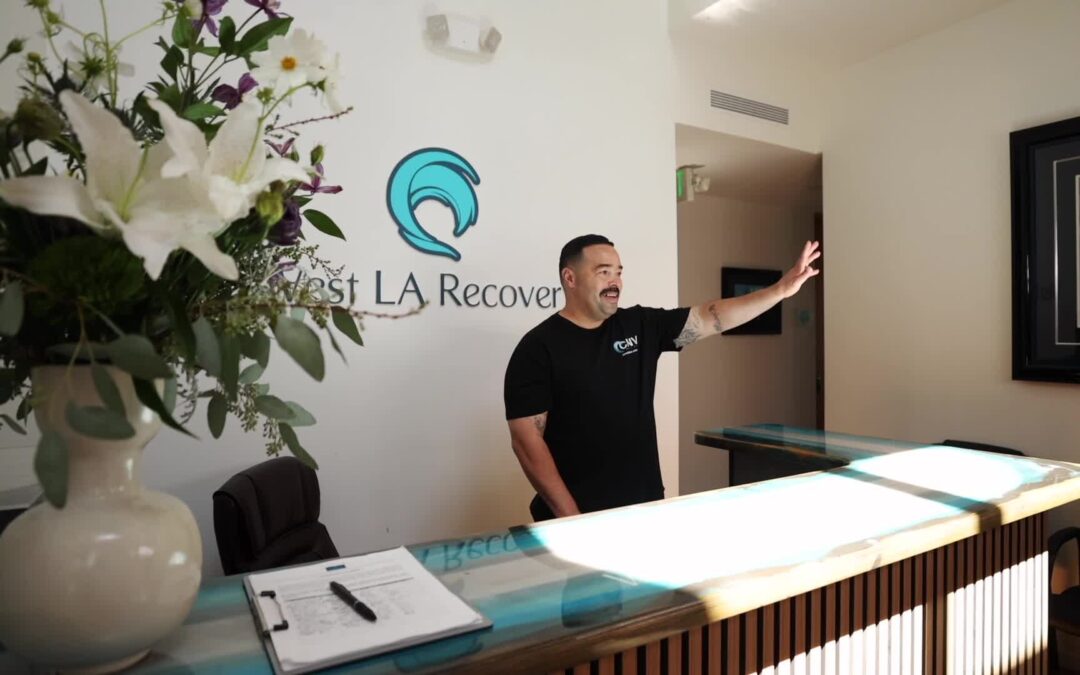Understanding Relapse
Relapse is when someone returns to using substances after a period of not using. It’s an important concept in addiction recovery. While it may seem like a setback, it can also be an opportunity to learn and grow. To truly understand relapse in the context of addiction, we need to realize that it’s not just a one-time occurrence but rather a part of the complex journey toward recovery.
Relapse Rates in Comparison to Chronic Diseases
According to the American Society of Addiction Medicine, the rates of relapse for substance use disorders are similar to those of other chronic diseases like hypertension or diabetes. This means that just like these conditions, addiction can also have relapses even with treatment.
Statistics show that:
- 40-60% of individuals undergoing drug or alcohol recovery may experience a relapse at some point.
- These figures highlight how common relapses can be during the recovery process.
The Importance of Relapse Prevention Strategies
Given these statistics, it becomes clear why relapse prevention strategies are crucial for maintaining long-term recovery. By implementing effective techniques and tools designed specifically to prevent relapses, individuals can significantly increase their chances of staying sober over time.
The Emotional Impact of Relapse
The emotional impact of relapse can be deep and significant. It often brings along feelings such as guilt and shame which can hinder progress if not dealt with properly.
It’s essential to acknowledge these emotions without letting them define your recovery journey. Instead:
- Engage with supportive networks: Surround yourself with people who understand what you’re going through and can offer encouragement.
- Seek therapeutic guidance: Consider talking to a therapist or counselor who specializes in addiction recovery for professional support.
By actively addressing these emotions through healthy coping mechanisms, you can transform them into fuel for personal growth rather than allowing them to become obstacles on your path toward sobriety.
Building Resilience Through Understanding
Understanding all these aspects about relapse lays down the foundation necessary for effectively dealing with it when it happens.
This understanding paves the way towards:
- Resilience: The ability to bounce back from setbacks and continue moving forward in your recovery journey.
- Renewed commitment: A fresh determination towards staying sober despite any challenges that may come your way.
Remember, every setback is an opportunity for growth if approached with the right mindset!
The Stages of Relapse
Relapse often unfolds in three stages: emotional, mental, and physical.
1. Emotional Relapse
During this stage, individuals may not consciously think about using substances but experience emotions that set them up for relapse. Indicators include anxiety, mood swings, isolation, and poor self-care. Recognizing these feelings early can prevent progress to the next stage.
2. Mental Relapse
A battle between wanting to use and resisting the urge characterizes this stage. You might notice increased cravings, reminiscing about past use, or bargaining thoughts like “just one time won’t hurt.” Awareness of such mental conflicts is vital to taking proactive steps against relapse.
3. Physical Relapse
This stage involves the actual act of using the substance again after a period of abstinence. It can be a slippery slope if emotional and mental cues are ignored.
Recognizing these stages early allows for timely intervention and reduces the risk of full-blown relapse. Identifying behaviors associated with each stage empowers you to make informed decisions in your recovery journey.
Common Triggers for Relapse
Understanding the risk factors for relapse is crucial in maintaining long-term recovery. Common triggers include:
1. Stress and Emotional Distress
High levels of stress or emotional turmoil can increase vulnerability to relapse. Coping mechanisms developed during active addiction often resurface when faced with overwhelming emotions.
2. Social Situations
Engaging in social activities that involve substance use can be particularly challenging. The pressure to conform or the mere presence of substances can act as significant relapse triggers.
Environmental cues also play a pivotal role in relapse. These might include places, people, or even objects associated with past substance use. For instance, visiting a location where one used substances previously can evoke strong memories and cravings, increasing the risk of falling back into old habits.
The presence of co-occurring mental health conditions further complicates the recovery process. Disorders such as depression or anxiety not only heighten emotional distress but also make it more difficult to resist urges, creating a perfect storm for potential relapse. Addressing these mental health issues is essential to reducing the risk of relapse and supporting sustained recovery efforts.
Strategies for Coping with Relapse
Self-Care Practices
Adopting strong self-care practices can be a key part of dealing with relapse. Here are some effective strategies:
1. Get Moving with Regular Exercise
Regular exercise is a powerful tool that benefits both your body and mind. Activities like jogging, yoga, or even walking can greatly reduce stress levels and boost your mood. When you exercise, your body releases endorphins, which are natural painkillers and mood elevators.
2. Nourish Your Body with a Balanced Diet
A balanced diet is equally important in supporting your recovery. Proper nutrition provides the energy and stability needed to fight cravings and emotional ups and downs that often come with relapse. Make sure to include a variety of fruits, vegetables, lean proteins, and whole grains in your meals to ensure your body gets the essential nutrients it needs.
3. Prioritize Quality Sleep
Adequate sleep is another crucial aspect of self-care. When you don’t get enough sleep, it can worsen feelings of anxiety and depression, making it harder to resist triggers. Aim for 7-9 hours of quality sleep each night to maintain mental clarity and emotional balance.
4. Manage Stress with Deep Breathing Techniques
Stress management techniques such as deep breathing exercises can provide immediate relief from tension. By practicing controlled breathing, you can calm your nervous system and lower stress hormones like cortisol. This simple yet effective technique can be used anytime to regain composure and focus.
Implementing these healthy habits into your daily routine may seem challenging at first, but the benefits are significant. Consistency is key; therefore, creating a structured schedule for exercise, balanced meals, restful sleep, and moments of relaxation through deep breathing can establish a strong foundation for recovery.
Embracing these self-care strategies ultimately empowers you to take control of your recovery journey. Cultivating these practices enhances resilience against relapse triggers, providing a sense of accomplishment and improving overall well-being.
Mindfulness and Stress Relief Techniques
Mindfulness meditation is a powerful tool for coping with relapse. It helps you become more self-aware, so you can identify your personal triggers and signs that a relapse might happen. With this practice, you learn to accept your thoughts and feelings without judgment, which allows you to observe cravings without giving in to them.
In addition to mindfulness meditation, incorporating other stress relief techniques into your daily routine can strengthen your strategies to cope with relapse. Here are some techniques to consider:
- Deep Breathing Exercises: These simple yet effective exercises reduce anxiety and promote relaxation.
- Progressive Muscle Relaxation: This technique involves tensing and relaxing different muscle groups, which helps ease physical tension.
- Guided Imagery: By visualizing peaceful settings, you can mentally escape from stressors.
- Yoga: This practice combines physical exercise with mindfulness to improve both your body and mind.
By emphasizing these practices, you can develop healthier habits and gain tools to effectively manage high-risk situations. Engaging in regular mindfulness activities may be crucial for maintaining your recovery progress.
Support Systems
Engaging with support groups such as Alcoholics Anonymous (AA) or Narcotics Anonymous (NA) plays a crucial role in coping with relapse. These communities provide not just shared experiences but also a network of understanding individuals who offer encouragement through each step of recovery. In these circles, you gain insights into strategies to cope with relapse, learning from others’ journeys and adopting healthy habits that reinforce your own path to recovery.
Creating an emergency contact list is another essential self-care strategy. This list should include trusted individuals who can offer support when cravings hit hard or during high-risk situations. Having immediate access to someone who understands your journey can help you manage these moments effectively, maintaining your commitment to sobriety.
Both support groups and emergency contacts emphasize the importance of self-awareness in identifying personal triggers and signs of potential relapse, fostering resilience against the challenges that accompany the recovery process.
Coping Skills Training and Therapy
Understanding how to cope with relapse is vital in the recovery journey. Coping skills training equips individuals with strategies to manage cravings effectively. This training focuses on enhancing self-awareness, enabling you to identify personal triggers and signs of potential relapse.
Relapse Prevention Therapy (RPT) is another powerful tool in managing high-risk situations. RPT prepares you for potential relapse factors by teaching techniques such as:
- Cognitive restructuring: Reframing negative thoughts into positive ones.
- Urge surfing: Riding out cravings without giving in.
- Developing healthy habits: Incorporating exercise and self-care strategies into daily life.
Engaging in these therapeutic practices fosters resilience and empowers you to handle challenging scenarios confidently. These strategies not only aid in coping with relapse but also promote long-term sobriety by embedding healthy habits into your lifestyle.
Learning from a Relapse Experience
Experiencing a relapse can be disheartening, yet it’s critical to understand that a relapse does not equate to failure. Instead, it is a component of the broader recovery journey. Recognizing this perspective helps in reducing the feelings of guilt and shame often associated with relapse. Embracing the notion that setbacks can happen empowers you to approach recovery with resilience and tenacity.
Adjusting Treatment Plans Post-Relapse
Adjusting treatment plans post-relapse is essential for continued progress. Identifying what led to the relapse can offer valuable insights into potential pitfalls and weaknesses in your recovery plan. This understanding fosters strategic adjustments, ensuring that future instances are met with improved preparedness and effective coping mechanisms.
- Incorporating new strategies: Consider revising your relapse prevention strategies by incorporating new tools or therapies.
- Enhancing support systems: Strengthening your support network could play a pivotal role in maintaining sobriety.
The Importance of Support After a Relapse
Learning from a relapse experience emphasizes the importance of support after a relapse, as community and professional guidance can provide reassurance and direction. Engaging with these resources aids in transforming a momentary setback into an opportunity for growth and renewed commitment to your recovery path.
Seeking Help
Seeking recovery support is a vital step in coping with relapse. West LA Recovery offers programs tailored to individual needs, providing a compassionate environment for healing. Engaging in these programs not only aids in overcoming addiction but also fosters a sense of community and belonging.
Embrace the opportunity to connect with others who understand your journey, enhancing your resilience and commitment to recovery. Remember, reaching out for help is a courageous and empowering choice that can lead to profound transformation and lasting recovery.
If you’re ready to take that step, don’t hesitate to contact us for more information or explore our resources for additional support.







